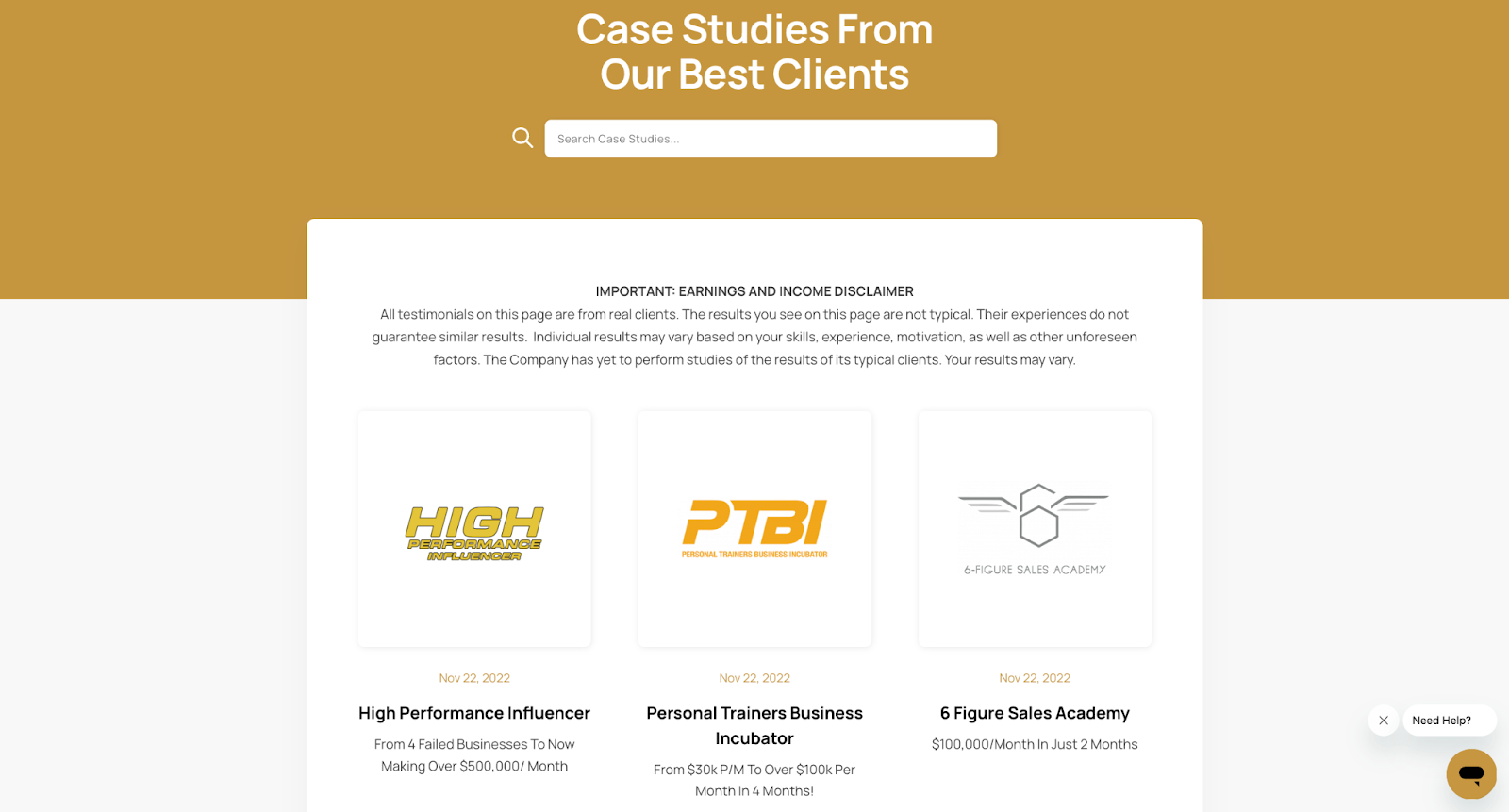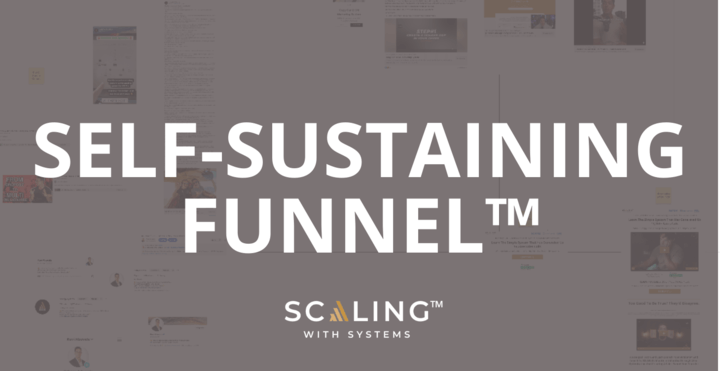Have you tested countless strategies to scale a consulting service business, but nothing seems to work?
If you’re in the start-up phase, it can be difficult to scale your business, especially when you don’t see immediate results for your hard work.
To scale a consulting service, you need to look at things from the perspective of your target audience.
Do you feel stuck as if you’ve lost momentum? You might need to rethink your existing strategies. Whether it’s paid ads or organic marketing, there are specific ways to stand out from your competitors.
If you’re about to give up on your marketing efforts, look at these numbers. In 2025, the CAGR for the consulting industry is expected to reach $1201.06 billion. There’s a lot of potential for success, so long as you do it right.
This guide explores in-depth how to scale a consulting business with not just one, but multiple strategies. Read on to learn more.
Is A Consulting Service Business Profitable?
It’s possible to successfully scale a consulting business for high profitability when you know how to structure the operations in an efficient manner.
If you’re not implementing the proper workflow with standard operating procedures, you might struggle to scale a consulting service business long-term. The systems and processes that allow you to function will decide the overall scalability and success of your consulting business.
When a consulting firm has a solid track record and a strong reputation, solving complex problems for businesses or organizations can be highly profitable. Businesses with a consulting business model need to differentiate themselves by offering unique value to clients because competition can be fierce in some industries.
For a consulting business to be profitable, it should deliver high-quality services, build relationships with clients, and improve operations continuously.
Client acquisition needs to be streamlined and planned out with clear budgets to ensure that the customer acquisition cost is low enough for a healthy profit margin.
Also, make sure you understand the target market and look for the most lucrative opportunities.
Steps Required To Scale A Consulting Business
You need a strategy to expand your operations and grow your business. This includes understanding your challenges and opportunities, setting goals, and finding tactics to fulfill these objectives.
Remember, a well-designed strategy will help your business reach more people and provide better results in the long term.
Step 1: Create A Sales Strategy
The professional service sector is projected to reach $7 trillion by 2025. With your competitors constantly rising; it’s important to stand out from the crowd. This is where most consultancy businesses fail.
They have difficulty with three things:
- Not understanding the needs and pain points of their target audience.
- Not delivering relevant information to help their audience.
- Overpromising and under-delivering on the solution.

When you do not clearly define your services and how they can benefit the customers, your potential customers will go to your competitors. Your customers want to know how you can help them and which pain points you will solve. This is where having an optimized sales strategy becomes super important.
Step 2: Rethink Your Marketing Efforts
Your marketing strategy can include multiple channels like online marketing, social media marketing, client interviews, or partnering with other businesses. Your focus is to take your business to the next level without spending an insane amount of money.
With multiple social media platforms like Facebook, LinkedIn, Instagram, or Twitter – you can reach more people within your target group. When you are constantly posting on social media, you are getting more eyeballs for your brand.

Client Interviews and case studies are goldmines for consultancy businesses. How you talk about your brand is different from how people who have been through the transformation talk about it.
When a potential customer sees transformation stories from real people, it builds trust and confidence in your products or services. Post these testimonials on your website or social media platforms or add them to your email marketing strategy.
At Scaling With Systems, we focus on getting social proof, like screenshots of recent client wins or case study stories. This shows that our framework has worked for thousands of business owners and will work for you as well.

Step 3: Look At Operations And Spending
To manage internal operations, you need to make sure that all the processes are working well together. This primarily refers to fulfilling your customer needs. Take a look at your current systems and operations. Get a better understanding of what’s working and needs to be fixed. This will help you make informed decisions for installing or refining new systems.
You now have a plan that should work well to build systems inside your business. To implement this plan, you have to start small. Focus on one department at a time. Only some ideas that you had in your mind will work. Experiment with smaller ideas with a handful of people to see which processes can be easily managed.
Ask for feedback from your team members involved during the test phase. Their perspective might help you refine the process better so that it works for the whole company.
Now that you have operations in place, how do you manage your spending? The traditional approach to budgeting has always been cutting costs by reducing the price of your product or service. What if there’s a better way to minimize your budget?

Instead of lowering your expenses, reduce costs by improving your efficiency. You should have a manager or department leader overlooking their team at every level.
At Scaling With Systems, we have multiple departments, such as sales, media, marketing, and client success. But how do we ensure everyone is on the same page and working together seamlessly?
We have a leader for every department responsible for ALL the operations within their department. Effective communication only occurs when all department leaders come together and discuss updates or problems. This increases our overall efficiency and minimizes our costs that could have been extended due to a lack of structure in the first place.
Step 4: Hire The Right People
Your team members can make or break your business. Do not take this lightly. When hiring new people or outsourcing specific tasks to freelancers, you want to get as many A players on your team as possible. Initially, it is okay to have B players, but that needs to be changed as You’re scaling a consulting service business.

Your team members are the ones using those systems and processes. Naturally, they might find errors or inefficiencies that you have overlooked. When you constantly encourage your team to improve and create a safe space for them, they will help you accelerate the growth of your business.
With the technology advancing, it’s in your best interest to update your processes with software and automation. Find out which tasks are being done manually and can be automated.
For example, can you automate accounting with a specific accounting software rather than someone filling the data manually in an excel sheet? Use workflow automation to remove repetitive administrative tasks and follow-ups on project delivery.
Step 5: Choose A Scalable Consulting Business Model
You need to choose a business model that works best for you:
- Subscription-based: Your clients pay a specific monthly or annual fee to access your course and services.
- Partnership Model: Find other consultants and partner with them to offer combined services. Split the profits based on the ratio decided in the agreement.
- Pay-per-use Model: Customers pay only when they get one specific service or offer rather than paying for the whole package.
- Freemium Model: As a consultant, you provide free training sessions to potential leads interested in your offer. They can buy your plan and access the service if they like the free training.
- Retainer-based Model: This is the one most consultants have been using lately. You charge a fixed fee from your clients every month.
3 Reasons Consulting Services Do Not Produce Required Results
You’re giving it your all. You have an irresistible offer that’s solving pain points for your audience, but you are not scaling at the rate you would ideally want.

There are multiple reasons why this might be happening:
1. Lack of Alignment with Organizational Goals
One of the most important factors in growing a consultancy business is making sure that the solutions you provide to your customers align with their organizational goals.
Here’s an example. Let’s assume there’s a manufacturing firm struggling to reduce its costs. They hire you as a consultant to help them refine their processes and reduce operational costs. You start working on a solution, but you have no idea about their goals or priorities.
You spend several weeks creating a plan based on their current operations. You identify areas that need improvement and propose a solution. It immediately gets rejected because you didn’t consider their goals and objectives while creating your solution.
Your client feels frustrated because they invested their money and time without getting any results. You might feel annoyed because all your efforts resulted in no real progress. This is why having clarity about their goals, objectives, and long-term vision is important right from the get-go.
2. Resistance to Change
People, in general, resist change. Companies have a structure that’s been working for them for years. They wouldn’t be comfortable changing everything all of a sudden.
If you believe that you’re providing excellent solutions to your clients, but they’re not implementing them, this might be why.
Plus, they have yet to trust you to implement everything you have said. It could either be the management or employees in general. Even when you’re giving solid solutions, they are not getting results because they are not executing them from start to finish.
Ultimately, this counts impact your firm where you failed to give results. Figure out if your client is resistant to change from the start and try to overcome them during the planning phase itself.
3. Inadequate Follow-Up and Support
Ask yourself: Are you following up with your clients and providing the support they might need to implement your framework or solutions?
Most consultancy businesses only get repetitive clients because of how their first experience went with you. To make sure they come back, follow-up and support are super important. Without your initial support, it might be difficult for them to implement your strategies, which means they’re not going to get the desired results.
Set Your Business Up For Long-Term Growth
While it can be challenging to grow your consulting business in the beginning stages, it will reap benefits in the long term.
When you grow your business, you open ways to generate more revenue, create impact and help more people reach their goals.
Specialize and Niche Down
There are several consulting agencies in the market. But how do you stand out from your competitors? Specialize and niche down to a specific industry where you become their go-to consultant for a particular type of client.
You get a better idea of your target market and their pain points by niching down. This will let you provide them with more value, which shows you as a trusted advisor in the market.
Develop Strong Relationships with Clients
It’s super important to build stronger relationships with your clients if you want to scale a consulting service in the long term. This can be done by focusing on the details, like maintaining regular communication with your clients and helping them whenever needed.
By doing this constantly, you’ll increase the customer retention rate, get more referrals and repeat business from existing clients. This will be a powerful method to grow your client base organically.
Invest in Technology and Automation
Technology is a great tool to streamline your operations and free up your time to focus on needle-moving activities that’ll grow your business.
With automation, you can remove time-consuming tasks such as manual data entry, project management, and follow-ups. Invest in the right software and platforms to increase efficiency, reduce costs, and provide your clients with a seamless experience.
Expand Your Team
As you’re constantly scaling, you need more people on your team to handle the increased demand for your services. If you’re still in the start-up phase, hiring a full-time employee might be expensive. This is where remote workers, freelancers, and virtual assistants come in.
We’re constantly helping our clients create systems to expand their teams and hire A players cost-efficiently. When you take time-consuming and repetitive tasks off your plate, you can support your clients better.
Bonus Tips To Scale A Consulting Business
We’ve curated some bonus tips to help you take your business to the next level:
- Build a strong brand: With solid branding, you can build more credibility, reach new people and differentiate yourself from your competitors. This can include creating a unique logo and marketing campaigns that reflect your brand mission and vision.
- Network and build relationships: When you network and develop long-term relationships with the right people in the industry, you’ll get help to find referrals and potential clients. To network, you can attend industry events, participate in online forums and reach out to potential referral partners.
- Develop a solid online presence: Reach more people and attract new clients by showing your expertise on social media. This might include creating a professional website, engaging with your audience, and optimizing your content for search engines.
- Invest in marketing and advertising: With innovative marketing strategies, you can reach more people and get new clients. Use digital marketing combined with the power of referrals and word-of-mouth marketing for maximum results.
Scale A Consulting Business: FAQs
How can I grow my consultancy business beyond my current client base?
To expand your business, focus on improving your brand reputation within your industry. Build your online presence, network with other professionals, and refine your marketing. Plus, running paid ads is a great way to get more eyeballs on your brand.
What area of consulting pays the most?
If you’re wondering which consulting area pays the most, it depends on a few things. The consultant’s level of experience, industry focus, and location can all play a role. However, in general, management consulting is one of the highest-paying areas.
That’s because management consultants work with top executives and leaders of organizations to make big decisions that can impact the company’s bottom line.
How to expand consulting business?
To grow your consultancy business efficiently, create a strategy by assessing your current resources, capabilities, and capacity for bringing new clients. When hiring new people, cross-check your budget and requirement properly.
Invest in resources and training for department leaders in your company. When they handle the internal operations properly, it’ll increase overall efficiency.
Wrapping Up: How To Scale A Consulting Business
It can be difficult to scale a consulting service, especially when you feel directionless.
But it’s incredibly rewarding when you have all the pages together. You not only get more clients or generate revenue; you create a more significant impact.
When scaling a consulting business, you aim to become an authority in your niche. So, whenever someone says I need someone for my consulting projects, they think of your company.
Position yourself as an industry leader. You have several tools, such as social media marketing, paid ads, client results, email marketing, and lead magnets. You need to figure out which strategy works best for you.
At Scaling With Systems, we have helped thousands of business owners scale their businesses to six, seven, and eight figures. We build custom client acquisition systems to get you new clients on autopilot.
Interested to learn more? Book a free consultation call with our team today.



